Korean proverbs are a rich source of wisdom, passed down through generations, reflecting the values, traditions, and insights of Korean culture. These proverbs, known as “속담” (sokdam) in Korean, are often used in daily conversations to offer advice, convey moral lessons, or simply express common sense. For learners of the Korean language, understanding these Korean proverbs in English can be both fascinating and challenging, as they encapsulate deep meanings in just a few words.
In this blog post, we present 20 originally Korean proverbs in English, along with their original versions in Korean, phonetic transcriptions, explanations, and examples.
Table of Contents
- 20 Famous Korean Proverbs in English with Examples and Explanations
- #1. 🦊 “A tiger leaves its skin after death, a man leaves his name.”
- #2. 🌱 “Even a sheet of paper is lighter when two people lift it.”
- #3. 🌾 “When whales fight, the shrimp’s back is broken.”
- #4. 🌙 “The frog in the well knows nothing of the sea.”
- #5. 🍚 “You reap what you sow.”
- #6. 🌸 “Even monkeys fall from trees.”
- #7. 🥢 “Spilt water can’t be gathered up.”
- #8. 🍃 “If you plant beans, you get beans; if you plant red beans, you get red beans.”
- #9. 🐟 “A rolling stone gathers no moss.”
- #10. 🔥 “A word once spoken cannot be taken back.”
- #11. 🌧 “After rain, the ground hardens.”
- #12. 🍁 “The early bird catches the worm.”
- #13. 🪨 “The water that falls drop by drop will wear away the stone.”
- #14. 🐓 “A hen’s crow in the morning brings misfortune.”
- #15. 🐇 “The child who falls often learns to walk early.”
- #16. 🍁 “The apple doesn’t fall far from the tree.”
- #17. 🌲 “The more you dig, the more you find.”
- #18. 🐢 “Slow and steady wins the race.”
- #19. 🌳 “Tall trees catch much wind.”
- #20. 🦉 “Owls sing before dawn.”
- Korean Proverbs in English Table
- Korean Proverbs in English Printable
- Conclusion
20 Famous Korean Proverbs in English with Examples and Explanations
Whether you are a language enthusiast, a cultural explorer, or someone looking to deepen their understanding of Korean wisdom, these proverbs will offer you a unique perspective on life as seen through the lens of Korean culture. Let’s dive into these Korean proverbs in English and explore the timeless wisdom they hold!
#1. 🦊 “A tiger leaves its skin after death, a man leaves his name.”
Original Proverb: 호랑이는 죽어서 가죽을 남기고 사람은 죽어서 이름을 남긴다
Phonetic Transcription: Horang-ineun jug-eoseo gajug-eul namgigo salam-eun jug-eoseo ileum-eul namginda
Explanation: This proverb emphasizes the importance of leaving a lasting legacy. Just as a tiger’s skin remains after its death, a person’s reputation and deeds are what endure after they are gone.
Example 1: “Live a life of integrity so that, like the proverb says, you leave a good name behind.
Example 2: “He worked tirelessly for his community, knowing that a man leaves his name behind, just like the tiger leaves its skin.”
#2. 🌱 “Even a sheet of paper is lighter when two people lift it.”
Original Proverb: 백지장도 맞들면 낫다
Phonetic Transcription: Baekjijangdo matdeulmyeon natda
Explanation: This proverb teaches the value of cooperation. Even something as light as a sheet of paper becomes easier to handle when two people work together.
Example 1: “The project was challenging, but we managed to finish it quickly because, as the saying goes, even a sheet of paper is lighter when two people lift it.
Example 2: “Let’s tackle this together—remember, even a sheet of paper is lighter when two people lift it.
#3. 🌾 “When whales fight, the shrimp’s back is broken.”
Original Proverb: 고래 싸움에 새우 등 터진다
Phonetic Transcription: Gorae ssau-eum-e sae-u deung teojinda
Explanation: This proverb warns that when the powerful clash, it’s often the innocent bystanders who suffer the most.
Example 1: “In the corporate war between the two giants, many small businesses suffered, just like when whales fight, the shrimp’s back is broken.”
Example 2: “As tensions rise between the two countries, it’s the civilians who will pay the price—when whales fight, the shrimp’s back is broken.”
#4. 🌙 “The frog in the well knows nothing of the sea.”
Original Proverb: 우물 안 개구리
Phonetic Transcription: Umul an gaeguri
Explanation: This proverb describes someone who is ignorant of the larger world because of their limited perspective.
Example 1: “He used to think his hometown was the whole world, but now he realizes he was just a frog in the well.”
Example 2: “Don’t be like the frog in the well—there’s so much more to learn outside of your comfort zone.”
#5. 🍚 “You reap what you sow.”
Original Proverb: 콩 심은데 콩 나고 팥 심은데 팥 난다
Phonetic Transcription: Kong sim-eundae kong nago pat sim-eundae pat nanda
Explanation: This proverb reminds us that the results we get in life are directly related to the efforts we put in.
- Example 1: “She studied hard all year, and her top grades were proof that you reap what you sow.”
- Example 2: “If you want to succeed, you need to put in the work—just like the saying goes, you reap what you sow.”
#6. 🌸 “Even monkeys fall from trees.”
Original Proverb: 원숭이도 나무에서 떨어진다
Phonetic Transcription: Wonsung-ido namu-eseo tteoleojinda
Explanation: This proverb teaches that even the best and most skilled people can make mistakes.
- Example 1: “Don’t be too hard on yourself for making that mistake—remember, even monkeys fall from trees.”
- Example 2: “He’s a seasoned expert, but even monkeys fall from trees.”
#7. 🥢 “Spilt water can’t be gathered up.”
Original Proverb: 엎질러진 물은 다시 주워 담을 수 없다
Phonetic Transcription: Eopjilleojin mur-eun dasi juwo dameul su eopda
Explanation: This proverb is a reminder that once something is done, it cannot be undone. It’s important to act with care and consideration.
Example 1: “After the argument, he realized his harsh words were like spilt water that couldn’t be gathered up.”
Example 2: “You can’t take back what you said—spilt water can’t be gathered up.”
#8. 🍃 “If you plant beans, you get beans; if you plant red beans, you get red beans.”
Original Proverb: 콩 심은데 콩 나고 팥 심은데 팥 난다
Phonetic Transcription: Kong sim-eundae kong nago pat sim-eundae pat nanda
Explanation: This proverb emphasizes that the results are always a reflection of what was originally put in—whether good or bad.
- Example 1: “Your success is no accident—you worked for it because, as they say, if you plant beans, you get beans.”
- Example 2: “She invested time and effort into her hobby, and now it’s her career—if you plant beans, you get beans.”
#9. 🐟 “A rolling stone gathers no moss.”
Original Proverb: 구르는 돌에는 이끼가 끼지 않는다
Phonetic Transcription: Guleuneun dol-eneun ikkiga kkichin anhneunda
Explanation: This proverb suggests that those who keep moving and adapting do not get stuck in one place.
Example 1: “He moved from job to job, learning new skills each time—like the rolling stone that gathers no moss.”
Example 2: “To avoid stagnation, keep pushing forward, just like a rolling stone gathers no moss.”
#10. 🔥 “A word once spoken cannot be taken back.”
Original Proverb: 내뱉은 말은 주워 담을 수 없다
Phonetic Transcription: Naebae-theun mal-eun juwo dameul su eopda
Explanation: This proverb is a cautionary reminder that words, once said, can never be taken back. They can have lasting consequences, so it’s important to speak carefully.
Example 1: “In the heat of the moment, he forgot that a word once spoken cannot be taken back.”
Example 2: “Think before you speak—after all, a word once spoken cannot be taken back.”
#11. 🌧 “After rain, the ground hardens.”
Original Proverb: 비 온 뒤에 땅이 굳어진다
Phonetic Transcription: Bi on dwie ttang-i gud-eojinda
Explanation: This proverb conveys that challenges and hardships can lead to stronger foundations and better outcomes in the end.
Example 1: “Their relationship was tested, but now it’s stronger than ever—after rain, the ground hardens.
Example 2: “The project faced many setbacks, but now it’s solid—just like the ground hardens after rain.”
#12. 🍁 “The early bird catches the worm.”
Original Proverb: 일찍 일어나는 새가 벌레를 잡는다
Phonetic Transcription: Iljjig il-eonaneun saega beol-laeleul jabneunda
Explanation: This proverb encourages taking early action to achieve success, as those who start early are more likely to reap the rewards.
Example 1: “He always starts his day at 5 AM, believing that the early bird catches the worm.”
Example 2: “She prepared well in advance, securing the best deal—just like the early bird catches the worm.”
#13. 🪨 “The water that falls drop by drop will wear away the stone.”
Original Proverb: 물방울이 바위를 뚫는다
Phonetic Transcription: Mul
bang-ul-i bawileul ttulnenda
Explanation: This proverb teaches the power of persistence. Even small, consistent efforts can eventually overcome the hardest obstacles.
Example 1: “He worked on his book a little each day, knowing that the water that falls drop by drop will wear away the stone.”
Example 2: “Don’t give up—keep going because, as they say, the water that falls drop by drop will wear away the stone.”
#14. 🐓 “A hen’s crow in the morning brings misfortune.”
Original Proverb: 암탉이 울면 집안이 망한다
Phonetic Transcription: Amtag-i ulmyeon jib-an-i manghanda
Explanation: This old proverb reflects a traditional belief that when things are out of their natural order, it can bring bad luck. In modern times, it’s often cited to caution against unusual or unexpected behaviors.
Example 1: “She tried to warn them, but they dismissed her concerns, citing the proverb about the hen’s crow in the morning bringing misfortune.”
Example 2: “Some superstitions are hard to shake, like the one about a hen’s crow in the morning bringing misfortune.”
#15. 🐇 “The child who falls often learns to walk early.”
Original Proverb: 자주 넘어지는 아이가 일찍 걷는다
Phonetic Transcription: Jaju neomeojineun ai-ga iljjig geotneunda
Explanation: This proverb suggests that experiencing difficulties early on can lead to faster growth and learning.
Example 1: “She faced many challenges as a child, but they only made her stronger—just like the child who falls often learns to walk early.”
Example 2: “Don’t worry about the setbacks; they’re helping you grow, like the child who falls often learns to walk early.”
#16. 🍁 “The apple doesn’t fall far from the tree.”
Original Proverb: 그 나물에 그 밥
Phonetic Transcription: Geu namul-e geu bap
Explanation: This proverb is similar to its English counterpart, meaning that children often resemble their parents in behavior or traits.
Example 1: “Like father, like son—the apple doesn’t fall far from the tree.”
Example 2: “She has her mother’s determination—the apple doesn’t fall far from the tree.
#17. 🌲 “The more you dig, the more you find.”
Original Proverb: 캐면 캘수록 더 많이 나온다
Phonetic Transcription: Kaemyeon kaelsurok deo mani naonda
Explanation: This proverb highlights the idea that the deeper you explore or investigate something, the more you uncover.
Example 1: “His curiosity led to many discoveries—like they say, the more you dig, the more you find.”
Example 2: “Keep researching; there’s always more to learn—the more you dig, the more you find.”
#18. 🐢 “Slow and steady wins the race.”
Original Proverb: 천천히 가도 황소걸음
Phonetic Transcription: Cheoncheonhi gado hwangsogeoreum
Explanation: This proverb encourages patience and perseverance, suggesting that even slow progress is valuable as long as you keep moving forward.
Example 1: “He took his time with the project, believing that slow and steady wins the race.”
Example 2: “Don’t rush—remember, slow and steady wins the race.”
#19. 🌳 “Tall trees catch much wind.”
Original Proverb: 큰 나무는 바람이 많이 불다
Phonetic Transcription: Keun namu-neun baram-i mani bulda
Explanation: This proverb suggests that those in prominent positions are more likely to face criticism or challenges.
Example 1: “As the new CEO, she knew she would face scrutiny—like they say, tall trees catch much wind.”
Example 2: “Being successful brings attention, and tall trees catch much wind.”
#20. 🦉 “Owls sing before dawn.”
Original Proverb: 부엉이가 울면 새벽이 온다
Phonetic Transcription: Bueong-iga ulmyeon saebyeog-i onda
Explanation: This proverb suggests that certain signs or actions can predict what is to come. It can also imply that things are about to change.
Example 1: “She noticed the signs and knew change was coming—just like when owls sing before dawn.”
Example 2: “There’s a sense of anticipation in the air, as if the owls are singing before dawn.”
Korean Proverbs in English Table
| 1. A tiger leaves its skin after death, a man leaves his name. | 11. After rain, the ground hardens. |
| 2. Even a sheet of paper is lighter when two people lift it. | 12. The early bird catches the worm. |
| 3. When whales fight, the shrimp’s back is broken. | 13. The water that falls drop by drop will wear away the stone. |
| 4. The frog in the well knows nothing of the sea. | 14. A hen’s crow in the morning brings misfortune. |
| 5. You reap what you sow. | 15. The child who falls often learns to walk early. |
| 6. Even monkeys fall from trees. | 16. The apple doesn’t fall far from the tree. |
| 7. Spilt water can’t be gathered up. | 17. The more you dig, the more you find. |
| 8. If you plant beans, you get beans. | 18. Slow and steady wins the race. |
| 9. A rolling stone gathers no moss. | 19. Tall trees catch much wind. |
| 10. A word once spoken cannot be taken back. | 20. Owls sing before dawn. |
Korean Proverbs in English Printable
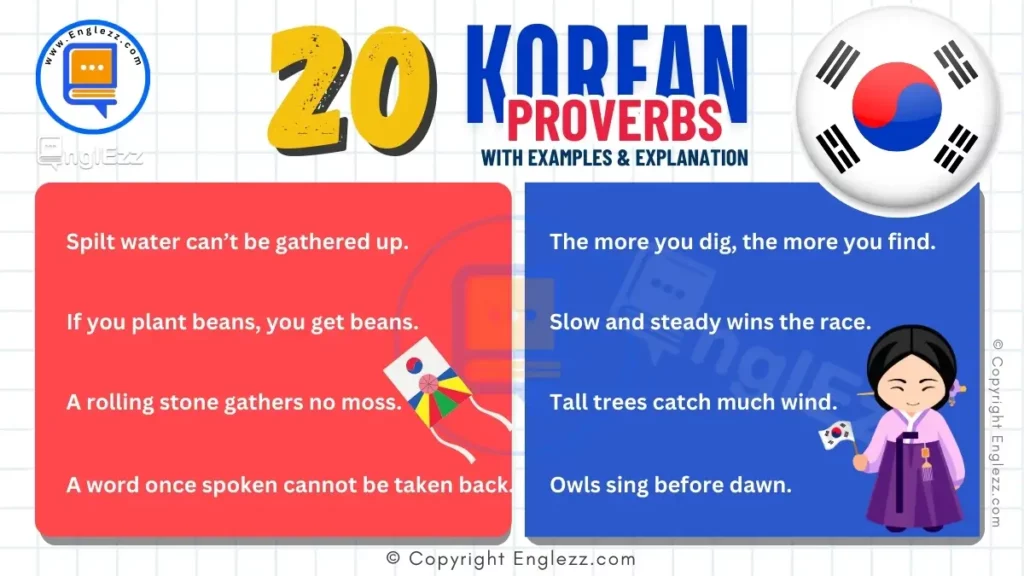
Conclusion
Korean proverbs offer a glimpse into the cultural wisdom that has been cultivated over centuries. They provide guidance, offer warnings, and reflect the values that have shaped Korean society. By learning these proverbs, not only do you gain insights into the language, but you also develop a deeper understanding of the Korean worldview.
Incorporating these proverbs into your daily life or conversations can add a layer of richness to your communication, making your expressions more vivid and culturally informed. Whether you’re a student of the Korean language, a lover of proverbs, or someone interested in cross-cultural wisdom, these 20 Korean proverbs in English are valuable tools for both learning and reflection.
As you continue your language journey, may these proverbs inspire you to explore even more of the beauty and depth found in Korean culture.



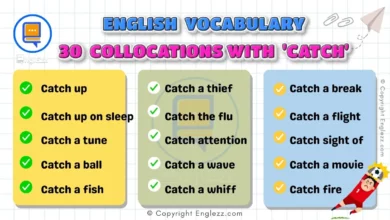

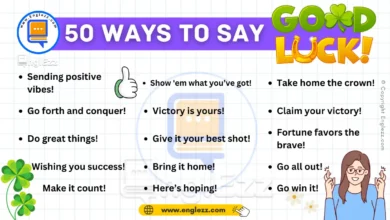

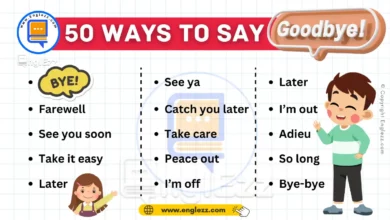
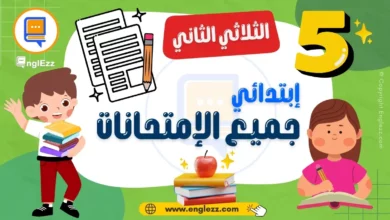
Discover the wisdom of Korean culture through these proverbs! 🌟 Check out the full list and don’t forget to follow and like EnglEzz for more cultural insights and language tips. 👍✨
.
https://www.englezz.com/20-korean-proverbs-in-english/
#englezz #KoreanProverbs #LanguageLearning #CulturalWisdom #KoreanCulture #Proverbs #LanguageTips